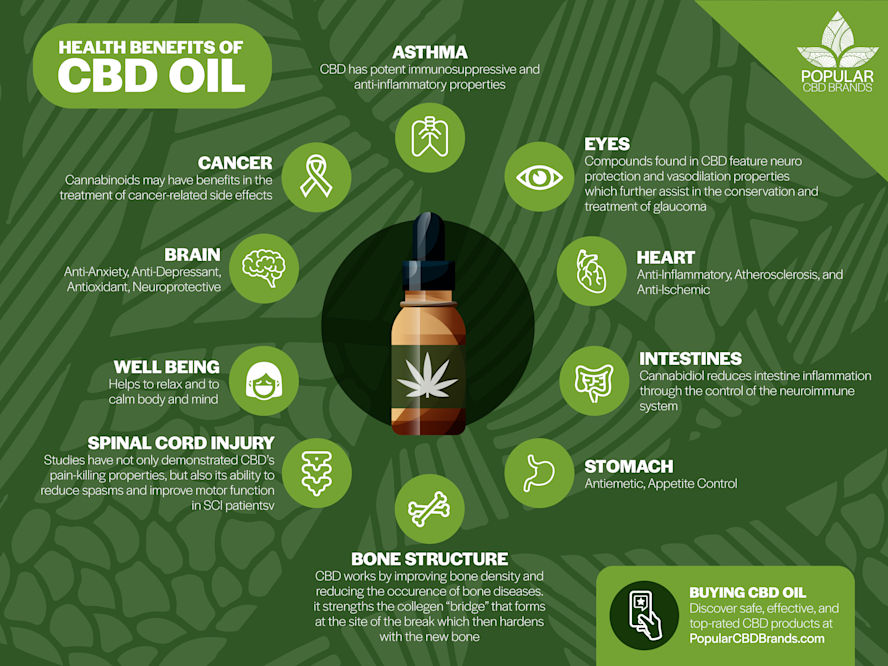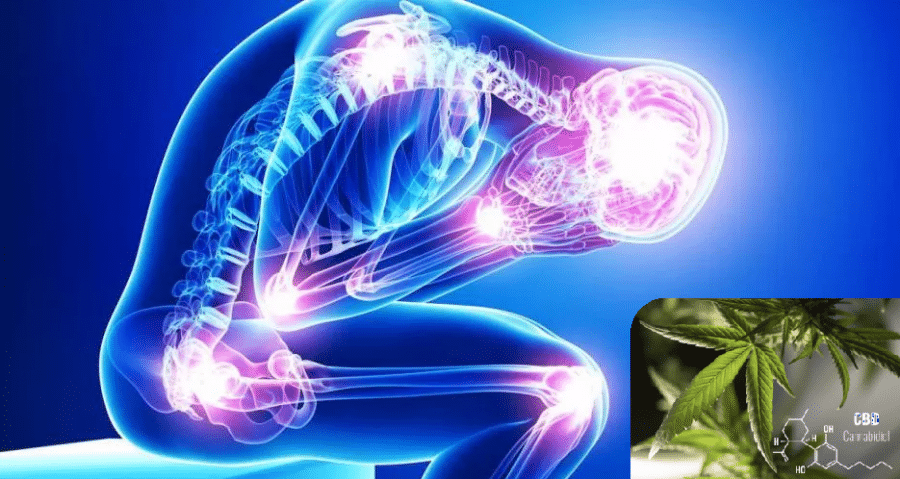
CBD drug interactions can be a major concern when a person is taking multiple medications. The interaction of a drug with another medication could lead to decreased effectiveness or side effects. Supplements may interact with medication. Discuss any changes in dosage with you physician.
There are several types of pain medications that may interact with CBD. Opiate painkillers for example activate opioid pain receptors in your brain which act as a gateway into pain signals. These drugs can be prescribed to decrease pain. These drugs are sometimes preferred by some, but others may find side effects more bothersome.
Other drugs that can interact well with CBD are benzodiazepines. They can cause fatigue and sedation. However, some people find these medications more effective than CBD.
It is possible for medications to interact with immune stimulants. Some of these medications can be used for the treatment of autoimmune disorders and inflammation. Others are immunosuppressants. They are used for transplant patients to prevent their organ rejection.

One of the most commonly used classes of medications are proton pump inhibitors. These drugs decrease the amount of calcium in the heart muscle cells. Blood pressure can be reduced by lowering heart contractility. These drugs can be combined with CBD to increase the drug's potency. This could increase the chance of hypoglycemia.
A medication that is prescribed to treat asthma is another commonly prescribed medication. This medication opens the airways, which can be beneficial for people suffering from asthma. CBD can also be used to inhibit the metabolism of this medication.
When CBD is taken with other drugs that use the same metabolic pathways, it can cause them to compete for metabolizing enzymes. This can result in side effects or an increase in the drug's concentration.
Prescription medications are not likely to experience any adverse effects from CBD. However, it is always a good idea consult your doctor. More clinical trials are needed in order to fully understand how CBD interacts with other medications.
CBD may not only prevent certain medications' metabolism, but it can also lower the amount of other substances that the body can process. For example, it can cause the body to less efficiently metabolize SSRIs. SSRIs are antidepressants that increase the concentration of serotonin at synapses, which is an important part of regulating mood. However, CBD may cause the opposite effect and may lead to adverse side effects for people who take these medications.

The following drugs can possibly affect the metabolization and use of CBD: diuretics; calcium channel blockers; proton pump inhibitors. As with all medications, these interactions are not well documented and more studies are needed to confirm their existence.
Another possible relationship between CBD and medications is a drug that is metabolized by the same pathway as the first mentioned. This is called an "agonistic interaction". Preclinical studies using supraphysiological levels in compounds to inactivate receptors and transporters have shown negative results.
FAQ
How do prices for CBD differ across states?
Prices for CBD products vary widely depending on where you live. The prices of CBD products can vary more than tenfold depending on where they are located.
Prices increase in the north. In Alaska, CBD is $35 per gram on average, while it costs $200 in Hawaii.
This trend continues throughout the country. Prices range from $5 up to over $2,500 for a gram.
Why is it happening?
Prices vary because of different levels of regulation. Some states require that CBD products have very low levels of THC (the psychoactive part of marijuana). Other states don't care what level of THC is present.
Because of this, some companies choose to sell their products in one state and then ship them to another state.
What CBD products have the highest sales?
CBD products are becoming increasingly popular. They are used for pain relief and anxiety. This market is large and growing quickly.
But what are people buying CBD oil for? And what does it mean for you, as a brand owner?
Statista says CBD products are popular for their relaxing properties. They are also used for their anti-inflammatory properties.
This means that you can sell your product for both medicinal and recreational purposes if it has CBD and THC.
What about brands that are focused on a single purpose? A company selling CBD for stress relief is an example of a brand that will not be challenged.
A brand that focuses on CBD for medicinal purposes will also have a large customer base.
However, a brand that wants to target recreational customers must develop a unique selling message (USP). A USP can be described as a unique selling proposition (USP) that is unique to a brand.
For example, some brands offer free shipping, while others offer discounts for bulk orders.
How much CBD is required?
The type of product you are buying will determine how much dosing is required.
CBD oils come in a variety of strengths, ranging from 100mg-1000mg per bottle.
There are many companies that make CBD products in very specific dosages. For example, 25mg, 50mg or 75mg.
Charlotte's Web, for instance, produces CBD products that are high in CBD and other cannabinoids.
Start with a low dosage if you are unsure if CBD is right for you.
You can always move up later.
Statistics
- As a substance that was federally illegal before the passage of the 2018 Farm Bill, hemp-derived cannabinoids with no more than 0.3% THC still face a regulatory grey area. (forbes.com)
- CBD seems unlikely to directly influence sleep in healthy humans [115] (and maybe “sleep-promoting” in those with certain comorbid conditions) (ncbi.nlm.nih.gov)
- OralWhere HED is the human equivalent dose, and Km is a correction factor estimated by dividing the average body mass (BM) of the species (60, 0.020, and 0.150 kg for 11 humans, mice, and rats, respectively) and by its surface area (see: Nair et al. (ncbi.nlm.nih.gov)
- The inhibition of FAAH is predicted to lead to an increase in brain and plasma concentrations of AEA, which acts as a partial agonist at CB1R and CB2R, thereby increasing endocannabinoid tone [92, 110]. (ncbi.nlm.nih.gov)
- While the primary injury may not be treatable, interventions that attenuate secondary sequelae are likely to be of benefit [203].Only one study (ncbi.nlm.nih.gov)
External Links
How To
What are the major issues facing the CBD industry in general?
The market for CBD is growing at an astonishing rate. But, businesses who want to enter this market still face numerous challenges. There are many challenges facing businesses looking to enter this space, including low consumer awareness, high costs of entry and limited access to capital.
Many consumers do not know what CBD is or how it works. They are unable to make an informed decision about buying CBD products.
CBD companies heavily rely on word-of-mouth advertising. This is costly, as it requires advertising and the hiring of staff to promote their brand.
Another issue for new entrants is the high cost production. The raw materials needed to create CBD products are quite expensive. To make CBD oil, hemp must be grown in certain climates and soil types.
It takes approximately $1,000 per acre to grow enough hemp to process into CBD oil. This means that many small farmers cannot afford the cost of starting.
The lack of capital access is another obstacle new entrants to the CBD market face. Due to the stigma surrounding the industry, banks discourage many people who wish to start businesses.
The sale of CBD products is still subject to regulatory uncertainty. There are currently not clear guidelines as to how CBD products should marketing.
Although some states have passed legislation restricting CBD product sales, this has not become a national policy.
So far, only two states - Maine and Nevada - have legalized recreational marijuana.
However, some states like Massachusetts and Michigan are considering similar measures.
These changes could cause increased competition among CBD manufacturers.
These factors lead to many entrepreneurs choosing to work from their home instead of starting a physical company.